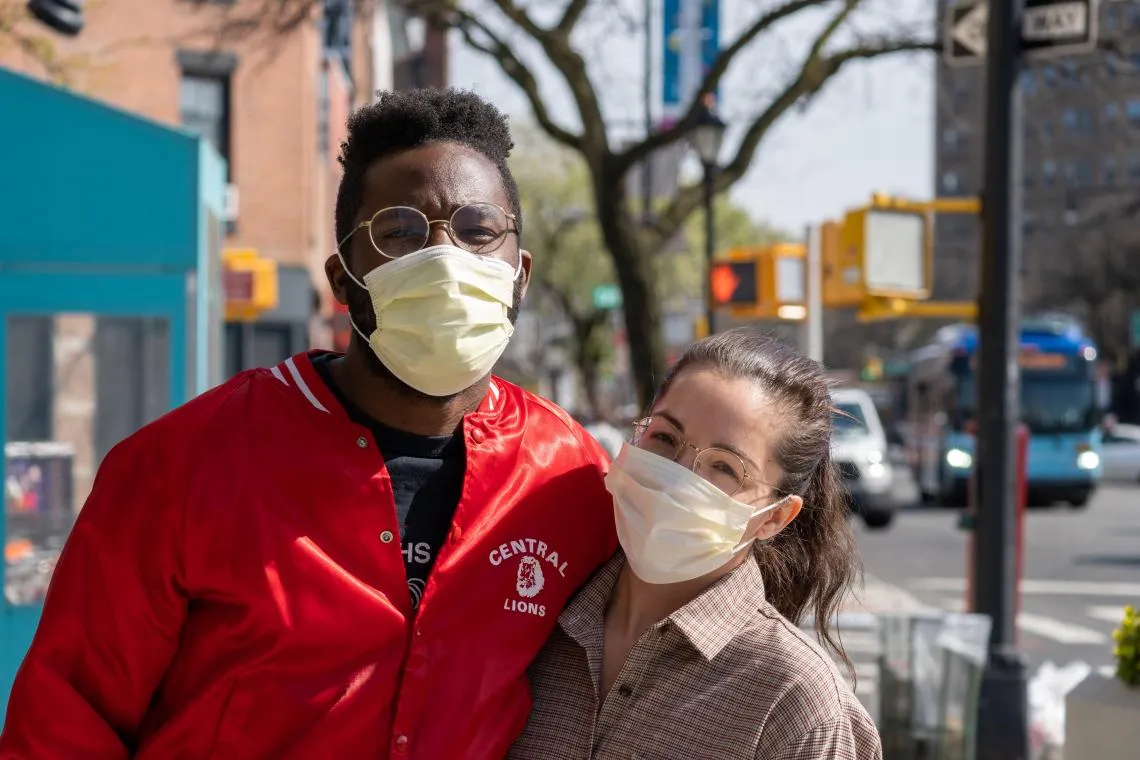Returning To College Life In A Pandemic

No one knew what was in store for us when COVID 19 took us by storm. It felt like our whole world was turned upside down. We were asked not to leave our houses, stay 6 feet from people, even our own family members. We had to learn a whole new way of getting groceries, seeing our doctors, and even learning how to cook to eat at home since we could not go out to our favorite restaurants anymore. Panic set in with shortages of supplies and isolating from others made it difficult to have human connection. We had to learn how to function virtually for everything; school, work, and socializing with friends. We lost structure, friendships, had to reschedule or completely cancel school trips, family vacations and missed important milestones like birthdays, anniversaries and most importantly graduation. Many have lost someone to COVID and could not properly pay their respects and attend the funeral. We were completely isolated from the world.
How has the pandemic affected you as a college student?
Some students embraced the solitude and felt they were more comfortable being alone in their apartments and could function just fine. Some students had to learn a new way of functioning without access to the classroom or professor. Students had to learn everything by virtual platform; lectures, class, assignments and interacting with peers on group assignments. For some, it created a disconnect from the world, from others and even from ourselves. Some students embraced the isolation and enjoyed working from home and having freedom to work on assignments at their leisure. While others, struggled to stay focused, experienced low energy, lack of motivation and could not stay on a schedule. Anxiety, depression, concentration, and structure all took a hit and our mental health and well-being suffered.
How do we pick up the pieces and rise above this pandemic? How do we create a new sense of normalcy after nearly 2 years of living in isolation?
We have been given the green light to return to campus and in-person activities. How do we find balance and adjust? There will be mixed emotions about returning to campus life. You may feel excited to see your peers, friends, and professors. You may feel fear of what to expect in-person; safety precautions, size of classes, working together in groups and fear of others not respecting or following protocols. You may have questions about how to live with a roommate and set healthy boundaries with them around safety. There is also fear of how well I will do getting back into the structure of in-person classes and deadlines and giving my full attention to the professor. You may also be afraid of socializing again and connecting with others.
There is good news! We are all in this together. At Counseling and Psych Services (CAPS) we can help you along this new journey back to campus life and in-person classes. You have support with us, we can walk along this path together. We have a process group called Navigating the Return to Campus Life where your questions, concerns, and even excitement can be heard and supported. If you have questions about the group or want to attend, please contact CAPS at (520) 621-3334.
Tips For Transitioning Back to In-Person Classes:
-
Feeling safe in class. Wear your mask, keep space between you and your peers; sit 2 seats apart from others. Practice proper hand washing and sanitizing. Do not share items such as pens, pencils, paper or books. If you feel unsafe, you can move seats to feel comfortable.
-
Connecting with Others. Hang out with your friends again and make new friends. You can socially distance but not socially isolate. Sit on the UA lawn with distance and have conversations and/or study sessions. Exercise together and eat together with safety protocols.
-
Healthy Roommate Boundaries. Set house rules about healthy space and cleanliness to properly safeguard from COVID. Have the conversation about who can be over at the dorm and how they will be safe and respectful of each other’s space. What will be required to have friends or family over, i.e. face masks, must be vaccinated, or stay 6 ft apart or outside only.
-
Time Management. Create and keep a schedule of daily activities and tasks. Be flexible to include time for self-care and things that may come up. Include time for eating a meal, exercise, and doing things you enjoy. It is important to have balance with work and play. Create a regular sleep schedule; with the same wake and bedtimes to get enough sleep. The body needs rest from the day to start fresh and restart for the next new day.
-
Organization. Keep a clean work area. Use a filing system to keep papers in order. Have a white board that can list your activities for the day. Work at your desk for work stuff and use your bed for sleep and relaxation. Have a clean backpack or binder that is easy to find things.
-
Self-care. It is important to incorporate activities that promote health, relaxation and balance with your mind, body, and spirit. Eat healthy and regularly, drink water, exercise, and practice meditation, deep breathing, and mindfulness.

